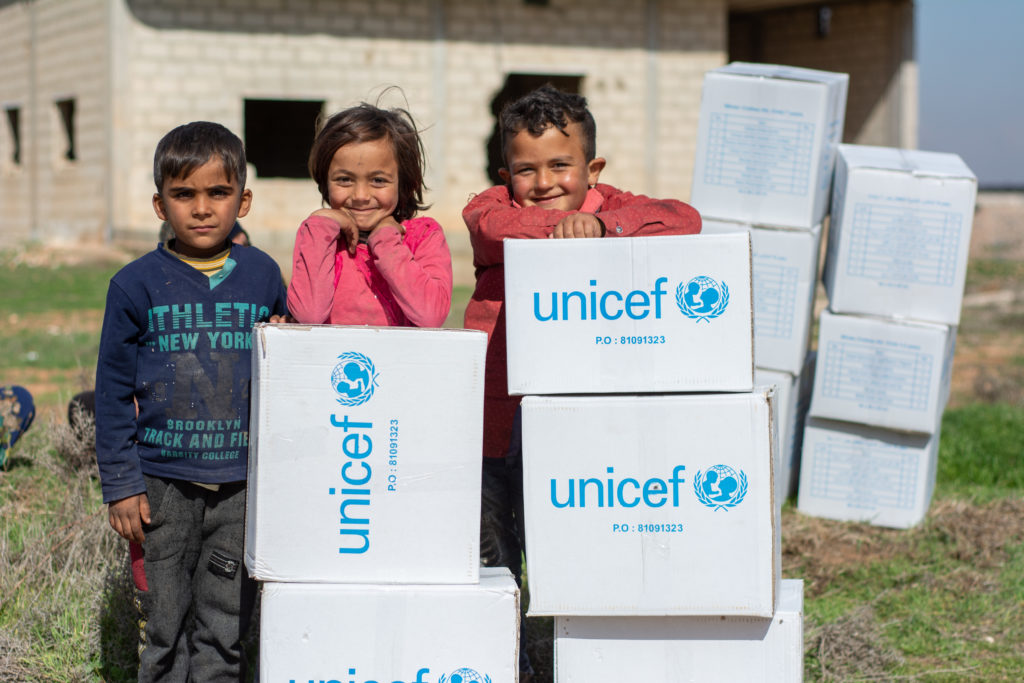More than three-quarters of a century ago, in the wake of the deadliest and most destructive conflict the world has ever witnessed, the United States, its allies, and a number of other countries came together to establish a new intergovernmental body, the United Nations.
Tasked with preventing and suppressing threats to international peace and security, encouraging respect for human rights and fundamental freedoms, and facilitating cooperation on a broad suite of international economic, social, and humanitarian issues, the UN became a core component of the international order that the U.S. helped build and maintain after World War II. And while the world has changed significantly since 1945, the UN’s role as a force-multiplier for the U.S.—a key mechanism for multilateral diplomacy to mitigate conflict, as well as for marshalling the necessary resources and political will to address challenges that no one country is capable of resolving alone—remains as vital as ever.
The work of the UN and its large family of affiliated agencies, programs, and initiatives covers a comprehensive set of issues and advances core American national interests in myriad ways. These include:
- Peacekeeping operations deployed to conflict zones and tasked with separating,
 disarming, and demobilizing combatants, protecting civilians from violence, facilitating humanitarian assistance, supporting democratic elections, and helping to lay the foundation for sustainable peace. More than 120 countries currently contribute troops and police to these missions, which are authorized by the UN Security Council. As one of five permanent, veto-wielding members of the Council, the U.S. has final say over the decision to deploy UN peacekeepers, and U.S. diplomats play a central role in crafting the mandates they are expected to carry out. UN peacekeeping operations have been repeatedly shown to be effective in reducing civilian deaths, preventing conflicts from spreading across borders, and averting the reoccurrence of large-scale violence once fighting has stopped. They are also extremely cost-effective, having been found by the U.S. Government Accountability Office to be eight times less expensive for American taxpayers than dispatching U.S.-led forces;
disarming, and demobilizing combatants, protecting civilians from violence, facilitating humanitarian assistance, supporting democratic elections, and helping to lay the foundation for sustainable peace. More than 120 countries currently contribute troops and police to these missions, which are authorized by the UN Security Council. As one of five permanent, veto-wielding members of the Council, the U.S. has final say over the decision to deploy UN peacekeepers, and U.S. diplomats play a central role in crafting the mandates they are expected to carry out. UN peacekeeping operations have been repeatedly shown to be effective in reducing civilian deaths, preventing conflicts from spreading across borders, and averting the reoccurrence of large-scale violence once fighting has stopped. They are also extremely cost-effective, having been found by the U.S. Government Accountability Office to be eight times less expensive for American taxpayers than dispatching U.S.-led forces; - Efforts to address threats to international peace and security through the imposition of legally-binding multilateral sanctions measures by the Security Council. From its seat on the Council, the U.S. has successfully pushed for the adoption of robust sanctions—including asset freezes, travel bans, arms embargoes, trade restrictions, and other measures—targeting the malign activities of terrorist groups (Al-Qaeda, ISIS) and rogue states that seek to obtain weapons of mass destruction (North Korea);
- Special political missions in countries like Iraq, Afghanistan, Libya, Somalia, Yemen, and Colombia that mediate peace talks between warring parties, monitor and investigate human rights violations, train and provide technical assistance to election administrators and other key democratic institutions, and coordinate international humanitarian and development assistance;
- The World Health Organization (WHO), a UN specialized agency, which works to coordinate the international response to public health threats, including the COVID-19 pandemic. From the outset of the crisis, WHO has distributed diagnostic kits and PPE to dozens of countries with weak health systems; formulated technical guidance for communities, hospitals, private sector partners, and public health authorities; carried out public awareness campaigns in dozens of languages in 149 countries; and worked to enable rapid and accurate research on the effectiveness of potential therapeutics. WHO is also at the center of a cooperative effort to distribute COVID-19 vaccines worldwide, launching a facility, known as COVAX, to invest in vaccine development and distribution;
- UN humanitarian agencies, which provide lifesaving assistance to tens of millions of people around the world every year impacted by armed conflict, political instability, natural disasters, the COVID-19 pandemic, and other calamities. Through the work of the World Food Programme, UN Refugee Agency , UN Children’s Fund (UNICEF), UN Population Fund (UNFPA), and others, the UN system serves as the world’s 911 service, providing food, shelter, clean water, cash assistance, vaccines, educational support, and reproductive health care to vulnerable communities in Yemen, Syria, Afghanistan, Ethiopia, Venezuela and numerous other humanitarian emergencies around the world; and
- UN human rights mechanisms, which investigate and expose systematic abuses in Syria, Iran, North Korea, Venezuela, Sri Lanka, Yemen, Iraq, Belarus, Myanmar, Eritrea, and other countries. The work of the UN Human Rights Council, the Office of the High Commissioner for Human Rights, and other entities help raise public awareness of human rights violations, magnify the voices of dissidents and civil society organizations on the ground, and provide a tool for pressuring repressive governments and holding abusers accountable.

Over the past year, the U.S. has reasserted its traditional role of leadership at the UN in a number of ways. The Biden Administration has rejoined the Paris Agreement on climate change and the UN Human Rights Council—two bodies that the previous administration withdrew from. The U.S. has also restored funding for UNFPA and the UN Relief and Works Agency for Palestine Refugees, and in general has moved to more fully engage in the hard work of multilateral diplomacy.
At the same time, however, the U.S. continues to carry more than $1 billion in peacekeeping arrears inherited from policy decisions made by Congress and the Trump Administration. Moving forward, the U.S. must address these financial shortfalls and ensure that they do not continue to pile up. Failing to meet our financial obligations to the UN not only harms critical programs—such as those enumerated above—that advance American interests and values and that would be difficult, if not impossible, for us to replicate alone; it sends a signal to our global competitors, particularly authoritarian governments in countries like China, that the door is open for them to influence the organization’s agenda in a way that more closely aligns with their own economic and security interests and values. To push back against them, the U.S. must continue to double down on robust and constructive engagement with the UN and the rest of the international system that it worked so hard to create in the 20th century.
To further underscore the importance of U.S. engagement with the UN, the text on the following pages provides information on various aspects of the UN’s work and how it advances U.S. interests—from peacekeeping and conflict mediation, to addressing the COVID-19 pandemic and countering climate change. It is our hope that this material can serve as a helpful resource—both for policymakers and members of the public alike—as the U.S.-UN relationship continues to shift over the coming year.